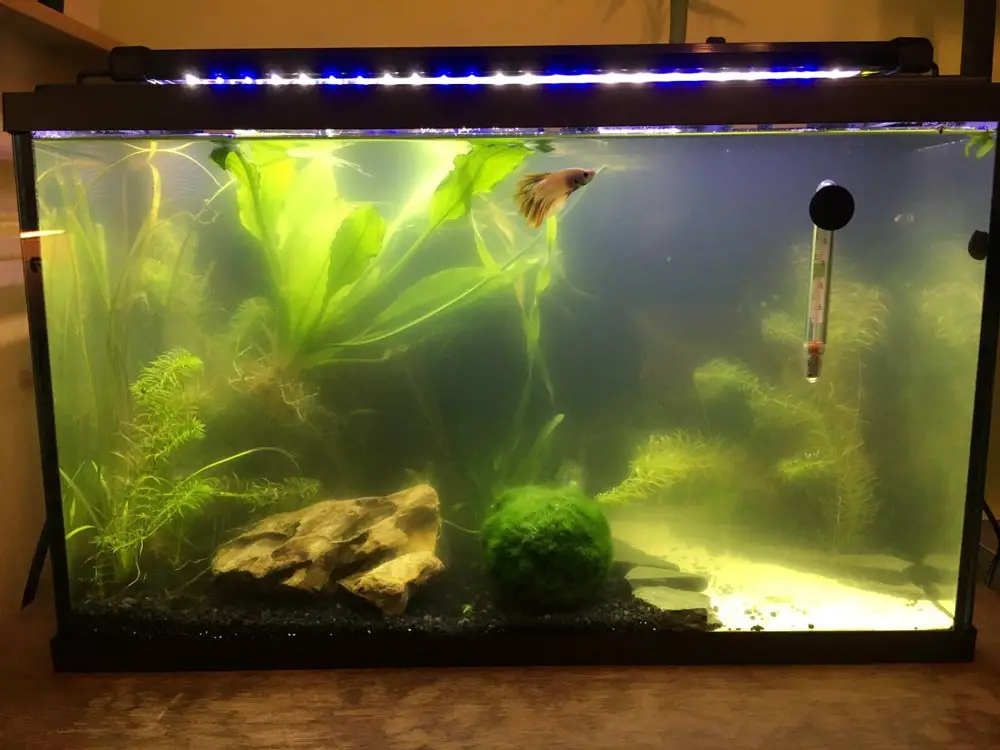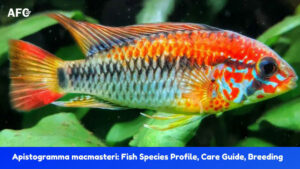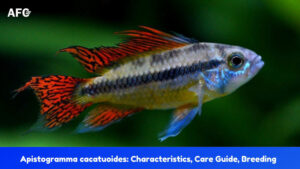Betta fish is an elegant freshwater tropical fish with flowing fins and brilliant colors. Taking care of Betta fish tank is not easy but very rewarding, but it can be painful and shocking when you find your little guy floating lifelessly at the surface or stuck to the filter intake. It’s even more difficult to cope with when it’s a sudden death.
When it happens, you’re left wondering, “Was it my fault? Why did my betta fish die suddenly?”
Most of us don’t think of our Bettas suddenly dying with no warning, but there is always a reason. So, it is important to be aware of all potential risks and learn something that can prevent mortal mishaps in your future Betta fish.
Why Did My Health and Happy Betta Fish Die Suddenly?
Betta owners often jump to conclusions in these cases – “My betta fish is sick” – when in reality, he will exhibit many signs of those suspected sicknesses. The most common causes of sudden death in health and happy Bettas in a healthy established tank involved:
Unreliable Heater
First and foremost, we want the tank heater to be reliable and accurate in maintaining water temperatures at the set temperature. For a Betta fish, the ideal temperature is between 74 and 82 degrees. An unreliable heater can raise the temperature to 90 degrees or even more, which could easily kill any fish.
So, what can you do?
A good tank heater is essential and can prevent this from happening again. The Cobalt Neo-Therm Heater is the only one I can trust. It comes with a slim design and is extremely accurate and stable. What’s more, it will shut the power off automatically when it reaches the set temperature, which is a must- especially something that leads to the tank temperature rising, such as a summer heatwave. The Cobalt heater is not cheap, but it’s worth the peace of mind.
Decorations-Related Injuries
It is essential to always be on the lookout for tank decorations that may result in your Betta dying. Sometimes Betta fish die suddenly and unexpectedly because they can snag themselves on something previously unnoticed by the owner, such as decorations with pointed ends or small spaces between stones where they could get stuck inside of it.
Injuries from tank decorations will get them infected quickly by bacterias or parasites in the water, causing death. Although we can use API Master Test Kit to test water quality, we can’t test bacterias or parasites.
Some fishkeepers get so excited to put the cute decorations found somewhere that untreated to the tank. It’s fun, right? Believe it or not, this is where the problem comes in. These things, such as ceramics that can leach chemicals and heavy metals or shells and corals that add calcium in the tank, could lead to death.
So how do we avoid this?
You should never add sharp edges and untreated decorations to your tank. It’s always better to be safe than sorry.
Bad Genetics
If you have tested the water parameters, looked at the latest fish-keeping practices, and ensured you’ve done everything right. Then you should consider this question “How long did you have your little boy?”
Pet stores breed Bettas in huge numbers, and they don’t monitor closely on their genetics, so Betta tends to have bad genetics.
What can we do?
All we can do is get a healthy Betta fish from a local breeder instead of stores like PetSmart or Petco. I know it’s easy to get discouraged, but believe me, it’s worthing the time.
Why Did My New Betta Fish Die?
As a beginner, you don’t have the ninja skills to take your first Betta fish properly. In most cases, you have done something wrong that causes the Betta fish to die suddenly. Here are some common mistakes:
Poor Water Conditions
Poor water quality means dead fish and can make your little boy more susceptible. Clean water in a tank is a critical component of his health. The water quality can change suddenly in many different ways.
Ammonia and nitrite are two of the many common problems that can arise in your tank. For any fish owners, it is smart to invest in an API Freshwater Master Kit to measure the water parameters, including ammonia, nitrites, nitrates, and pH level.
To thrive, you want to strive for the perfect water conditions. The ammonia and nitrite levels should be as close to zero as possible, while your nitrates are limited below 20 ppm to maintain an environment that is healthy for all of its inhabitants!
It is also essential to try to keep a steady pH level; even your little guy can adjust to different pH levels. He prefers calm water with a pH between 6.8 and 7.5 to survive. Too high or too low is fatal.
As you might know, the Betta killer “Dropsy” is typically caused by bad water quality. A healthy Betta fish has a strong immune system that can Betta deal with infections, but poor water will make them vulnerable to sickness.
One of the biggest problems is that the filter is no longer doing its job, and this means your tank will start to turn into a toxic soup. You need to have a low-flow filter in the tank to oxygenate the water, establish a tiny ecosystem, keep the water clean and remove any ammonia from it.
Overfeeding
Overfeeding is the most common mistake made by new fish owners. In most cases, they overfeed the Betta by good intention because “oh, look at him, he just looked so hungry.”
The right diet is the key to having the best betta fish experience possible. The recommended feeding schedule is two or four pellets per day, once or twice per day. If you give him too much, excess waste can lead to poor tank condition rapidly.

On the other hand, overfeeding can also cause algae and bacterial outbreaks in your tank. Anything that makes a plant grow will also contribute to algae growth. When the “crash” occurs, a rapid decline in dissolved oxygen can result in fish kills.
How to prevent?
Personally, to prevent overfeeding in the future, I would like to fast my little boy on the weekends and treat him with some bloodworms on Monday and Friday.
An Uncycled Tank
This is one of the most common mistakes for beginners. You find a tank you like, then add water and dechlorinator, you think it’s the moment you’ve been waiting for – it’s time to add the betta fish! After all, they are anabantids that can survive in harsh environments where most other species would perish.
Either way, a new tank has to go through the long and confusing process of cycling. Ammonia and nitrates from uncycled tanks can be dangerous and even lethal for your Betta fish, as they will quickly harm or kill any living beings in small concentrations.
What to do?
To protect your Betta fish from sudden death, you should take the time to cycle the tank properly. Research how different types of tanks cycle as well as which type may work better for you. It will take time to grow and adjust before they’re ready to add any fish, so be patient!
Inappropriate Tank Size

Betta fish should never be in a tiny tank like you see at the store. Sure he’ll survive for a while. Many people think that it’s okay to put Bettas in small containers. I know how resilient they are, but their survival doesn’t mean thriving, and these little guys need room to grow!
What tank size should I get?
To avoid your Betta dying suddenly due to the stress or diseases caused by the polluted water in a small tank, pick up at least a 5-gallon tank for your little guy. The bigger the tank, the healthier your Betta, the easier it will be to maintain.
Low Temperatures
Some keepers mistakenly think that Betta fish don’t need a heater. This is not true in most cases, and a heater is usually necessary for their tank. As we mentioned before, unlike goldfish, Betta fish are tropical, and you need to keep their water temperatures between 75-80 degrees if you want him to be healthy and live a long life.
For a Betta fish, cool water will cause stress, illness and premature death. The cold can be brutal on your aquarium – even if you live in a warm climate. During the night, when it’s likely to drop below 70° F (21 °C), tank water will rapidly cool and could lead to sick fish or ich outbreaks.
Does a Betta Need a Heater?
It’s best to include a heater in your tank to maintain the Betta’s temperature consistently. You should be aware that even the very small heaters may heat the temperature too much if you have a tiny tank for your Betta.
Incompatible Tankmates
Incompatible tankmate is another common cause of sudden death in Bettas. There are certain fish that bettas can live with, but they require special care.
Many types of anabantids or any type with flowing fins may provoke aggression in bettas. These fishes represent a particularly dangerous threat because they might look similar to another male betta- causing them more stress and even death their aggression and stress that may result in death.
If your Betta died after you introduce a new member, then that’s probably the cause.
So how do we avoid this?
You should never keep your Betta fish with tank mates in a tank under 10 gallons. They will constantly fight until they eventually kill each other. If you are looking to add tank mates with your Betta, do some research and make sure they won’t be aggressive and dangerous.
Large Water Changes
The water chemistry in a healthy, established aquarium is carefully balanced with resident fish, plants and bacteria colonies. Large quantities of water changes are going to cause bacteria to die off and stress your Betta a little bit, causing death.
What’s the best way?
We must be careful when changing water. A 100% water change for your Betta is not a normal thing and should be avoided. You should perform water changes slowly. I shoot for about 20%-40% water changes once every 2-3 weeks, depending on the size of the tank.
Unexpected Toxins
Even the smallest amount of toxins can be fatal to your beloved Betta queen. Toxic materials like bug spray, natural body oils on your hand, soap and perfume can lead to death if the tank water becomes contaminated with these items.
Let’s straighten things out here:
- Protect your tank from contamination by using a good cover.
- Don’t use chemicals to clean the algae.
- Don’t add untreated decoration into your tank
- Test your tap water (City water) before adding it to your tank
- Wash your hands with unscented soap first before reaching into a tank.
Stress
Stress is the biggest cause of sudden death. That’s why managing stress levels are so important to make sure you keep them healthy at all times! Stress builds adrenal cortisol hormones and weakens their immune system that can kill your Betta eventually.
Many issues can contribute to it.
- Your tank is too small – if you have a tank that is smaller than 5 gallons, then your Betta will become stressed out very quickly.
- Overcrowding in the tank – Overcrowding is a common Betta killer. The more you overcrowd your fish, the less space they have to swim around in and any potential ammonia problem becomes all too likely.
- Lack of hiding places: As solitary fish, Betta fish tend to be more stressed in a community tank. So, they need some hiding places to relax, or else they will get stressed. A decoration or rock cave is fine.
- A strong filter – May push Betta around in a small tank, which can stress them out.
Diseases
If you’re a betta fish owner or plan on becoming one soon, it’s important to know the different types of illnesses and diseases they can get.
The common diseases and illnesses of betta fish include:
Fungal infections are always found among Betta fish with a history of illness, such as fish fungus and fin & tail rot.
Bacterial infections are typically traced back to poor water conditions and bad tank maintenance, such as Columnaris, popeye, Dropsy, cloud eye, etc.
Parasitic diseases generally happen when you introduce new fish to the tank. These most contagious ailments include Velvet, Ich, Anchor Worms, and Hole in the Head.
Why Do Betta Fish Die Suddenly?
It is always heartbreaking when you lose your Betta, and you’re not alone. I hope this article was helpful for fishkeepers who have lost fish and are trying to figure out why. I tried to cover all of the reasons why Betta fish die, but if you think I missed something, let me know in the comments below!
Don’t give up, and good luck with your future Betta!





